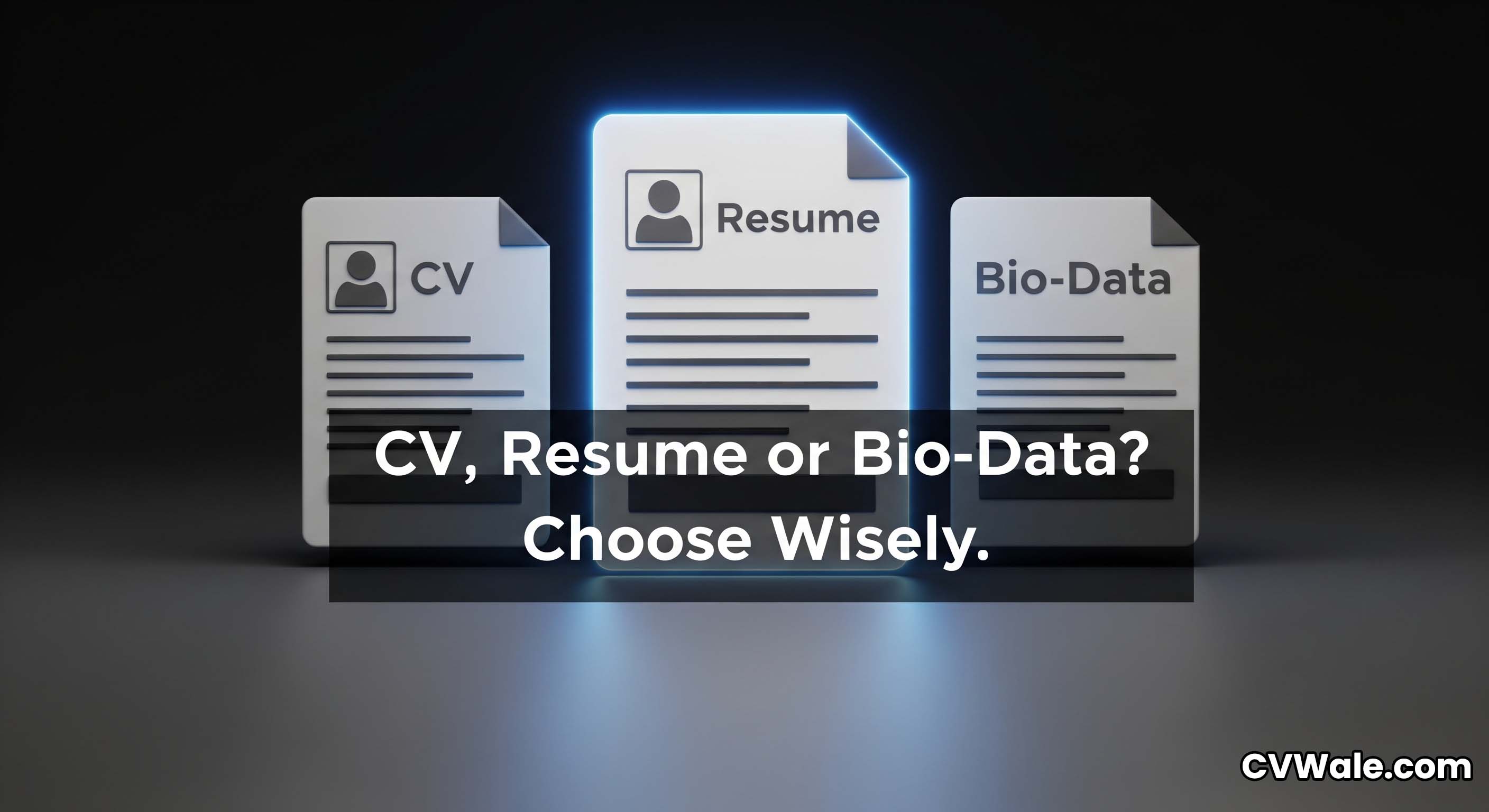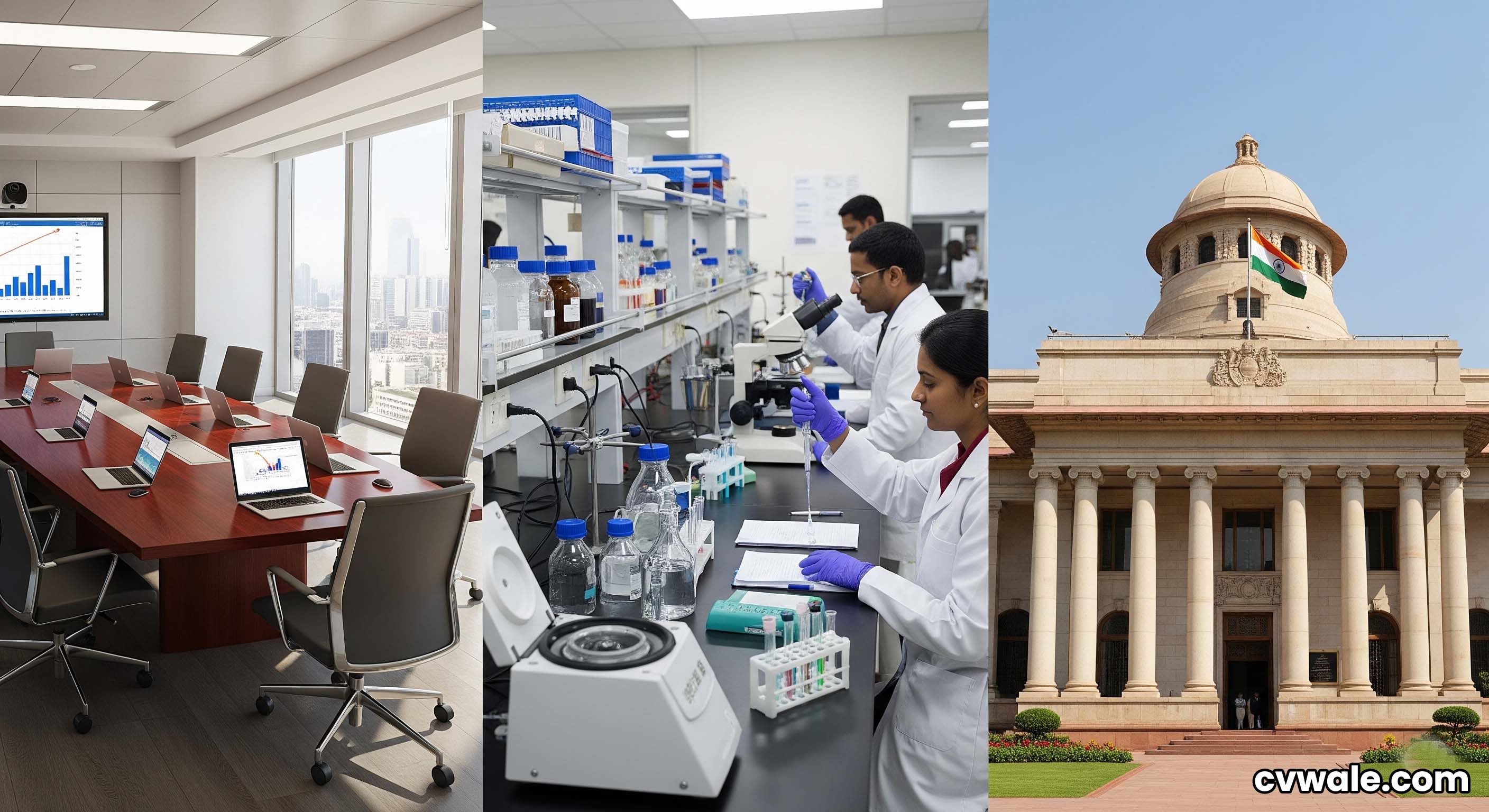CV vs. Resume vs. Bio-Data: The Ultimate Guide for Indian Job Seekers (2025)

When you start applying for jobs in India, one of the first hurdles you encounter is figuring out what kind of document to submit. You'll hear the terms CV, Resume, and Bio-Data used, often interchangeably, which can be incredibly confusing. Do they mean the same thing? Does it matter which one you use? The short answer is yes, it matters a great deal. Submitting the wrong type of document can make you look unprofessional or, worse, get your application rejected before it's even read. This comprehensive guide will demystify these terms, break down the precise differences between a CV, a Resume, and a Bio-Data, and give you a clear verdict on what Indian employers really want in 2025, ensuring you always put your best foot forward.
The Resume: Your Marketing Handout
A Resume is a short, concise, and highly customized document designed to market you for a specific job opening. The word "resume" comes from the French word "résumé," which means "summary." That's exactly what it is: a summary of your most relevant skills, qualifications, and work experience.
- Length: Strictly one page. For highly experienced professionals (10+ years), it can extend to two pages, but never more.
- Purpose: The sole purpose of a resume is to secure a job interview. It's a targeted document that quickly shows a recruiter why you are the perfect fit for *this specific role*.
- Content: It focuses on brevity and impact. It doesn't include every single detail of your career. Instead, it highlights achievements and skills that are directly relevant to the job description. For example, if applying for a sales role, you would emphasize sales figures and targets you achieved, not your proficiency in a programming language.
- When to Use in India: A resume is the standard document for applying to almost all jobs in the private sector in India, from startups to large multinational corporations.
The CV (Curriculum Vitae): Your Academic & Professional Life Story
A Curriculum Vitae (CV), which is Latin for "course of life," is a much more detailed and comprehensive document. Unlike a resume, a CV is static and doesn't change for different job applications. It provides a full, in-depth account of your entire academic and professional journey.
- Length: A CV has no length limit. It can be two, three, or even ten pages long, depending on your experience.
- Purpose: The purpose of a CV is to provide a complete overview of your academic and professional credentials. It is used when applying for positions where a detailed history is important.
- Content: A CV includes your contact information, a detailed academic history (including all degrees, theses, dissertations), research experience, publications, conference presentations, grants, fellowships, awards, professional licenses, and teaching experience. The work experience section is also detailed and chronological.
- When to Use in India: In India, a true, multi-page CV is primarily used for applications in academia (e.g., professor, researcher), scientific research, and medical fields. However, in the corporate world, the term "CV" is often used informally to mean "Resume." When a corporate job ad asks for a CV, they almost always expect a 1-2 page resume.

The Bio-Data: The Outdated Personal Profile
A Bio-Data, or Biographical Data, is a format that is now largely considered outdated for professional job applications in India's private sector. Its primary focus is on personal, biographical information rather than professional qualifications. This format has its roots in an era when personal attributes were given more weight in hiring, as well as in arranged marriage proposals.
- Length: Typically one page.
- Purpose: To provide a personal profile of an individual.
- Content: A Bio-Data heavily features personal details such as: Full Name, Father's Name, Date of Birth, Gender, Religion, Nationality, Marital Status, and sometimes even height and weight. It then includes a chronological listing of education and work experience, but this is often secondary to the personal data.
- When to Use in India: You should avoid using a Bio-Data format for any private-sector job. It can make you seem unprofessional and out of touch with modern business practices. Its use is now limited to very specific contexts, such as certain government job applications or matrimonial purposes, where this level of personal information is explicitly requested.
Quick Comparison: CV vs. Resume vs. Bio-Data
| Feature | Resume | CV (Curriculum Vitae) | Bio-Data |
|---|---|---|---|
| Purpose | To get a job interview (targeted) | To provide a full academic/professional history | To provide personal biographical data |
| Length | 1-2 pages maximum | 2+ pages, no limit | 1 page |
| Content Focus | Skills and achievements relevant to a specific job | Complete academic and professional credentials | Personal details (age, religion, marital status) |
| Customization | Must be tailored for each job | Static; does not change | Static; does not change |
| Use in India (2025) | Standard for all private sector jobs | Used for academic, scientific, and research roles | Largely outdated; only for specific government jobs or matrimonial purposes |
The Final Verdict: What Should You Use?
For over 99% of job seekers targeting the corporate or private sector in India, the answer is clear: you need a well-crafted, tailored Resume.
Even if a job description asks for a "CV," they mean a concise, 1-2 page document that functions as a resume. The key is to always focus on showcasing your most relevant skills and achievements that align with the employer's needs. Creating a modern, professional, and tailored resume is precisely what CVWale was designed for. Our free tool helps you build a document that meets the expectations of today's Indian employers, ensuring you make the right first impression, every time.
